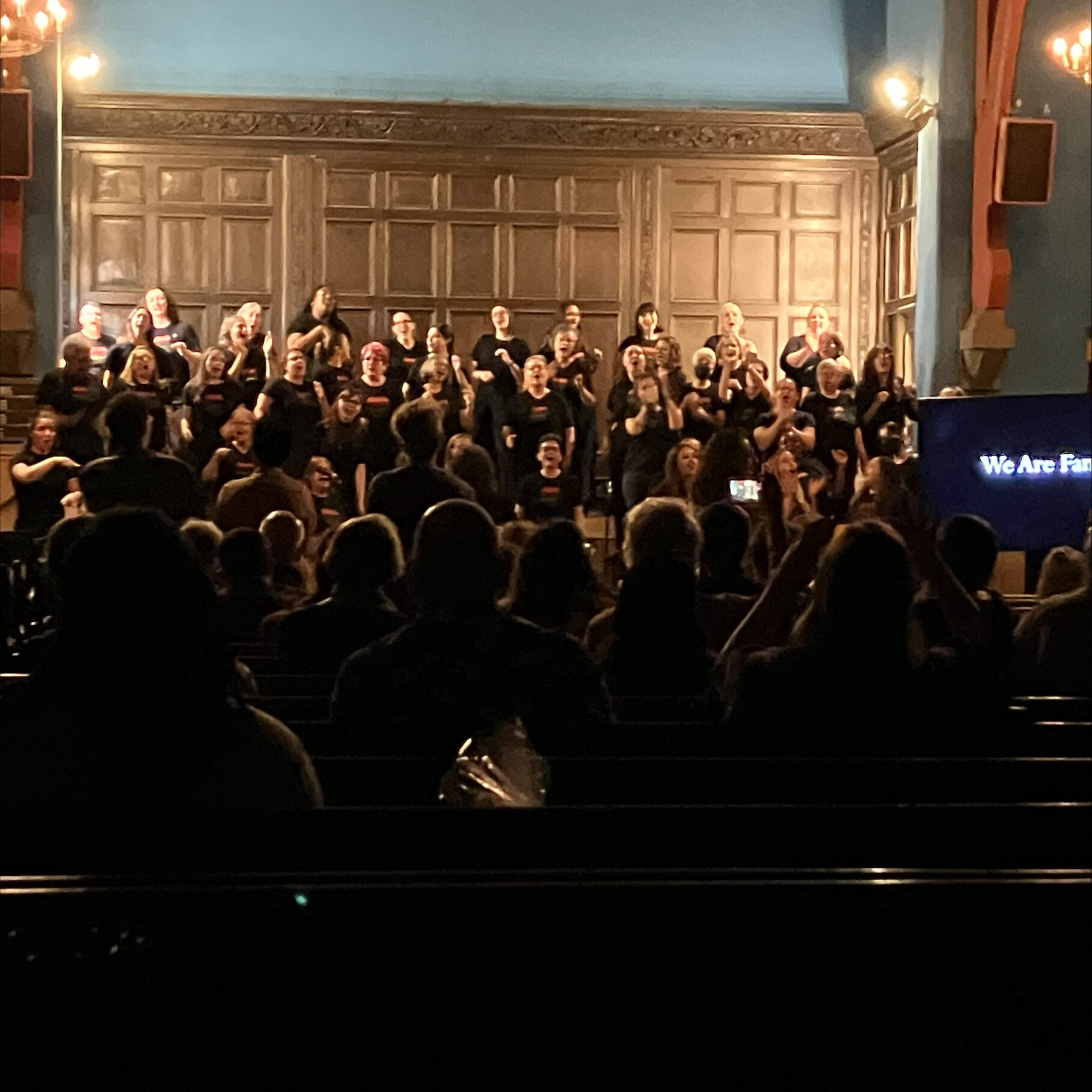An unseasonably warm and humid evening air permeated through the windows and doors of the First Unitarian Church of Philadelphia on this Friday evening. Condensation from the rain glistened from the open windows. But no one seemed to mind the warmth or inclement weather, for in this sanctuary the Anna Crusis Feminist Choir had created a safe space from the storm, figuratively and metaphorically. Anna Crusis is a musical organization dedicated to celebrating the transformative power of music through diverse and inclusive choral performances. They are committed to highlighting the works of underrepresented composers, particularly those from BIPOC and LGBTQ+ communities. The ensemble is known for its innovative programming, which blends classical, contemporary, and folk music, with a focus on social justice themes. On this night, underneath a banner of great abolitionist Francis Ellen Watkins Harper, Anna Crusis challenged the status quo of Western music hierarchy, while skillfully providing an environment filled with inspiration, liberation and empowerment!
The concert, Tattoo Monologues, was inspired by the book of the same name written by Donna Torrisi and John Giugliano. Personal stories can be revealed by body art. This art can reflect moments of joys, pains, vulnerabilities and empowerment. Through this theme, Artistic Director Miriam Davidson masterfully created a program that married diverse styles of 20th-21st century vocal ensemble music with the personal stories of the ensemble members. From the passionate, emotionally visceral arrangement Fire by Katerina Gimon, to the celebratory We are Family, composed by Rock and Roll Hall of Famers Nile Rodgers and Bernard Edwards, Anna Crusis created a transformative musical experience that celebrated individual uniqueness and authenticity.
The concert presented several compelling elements that merit commendation. Notably, the inclusion of personal testimonies from ensemble members about their tattoos added a unique and intimate dimension not often seen in choral performances. This humanizing approach allowed the audience to gain insights into the passion driving the performers.
The concert excelled in its authentic presentation of a diverse repertoire, showcasing the performers’ freedom of gestural expression and fostering meaningful connections with the audience. The program adeptly navigated a range of emotions—joy, pain, levity, healing, and self-reflection—through culturally rich performance practices.
Particularly striking was the rendition of Gina Chavez’s La Que Manda (Who’s in Charge?), delivered with a fearless intensity that resonated with the lyrics’ empowering message: “Who am I? I’m the boss… Walk with me, or not. I’m happy with who I am.” The ensemble effectively captured the Latin nuances inherent in this piece.
Similarly, Rosephanye Powell’s Love Will Find a Way showcased a gospel style that beautifully articulated the universal belief in the power of love. The ensemble members embodied the emotional intent of the music, delivering performances that were culturally appropriate while resonating deeply with the audience.
Reena Esmail’s Take What You Need offered the audience a chance to pause amidst life’s hustle and bustle, fostering emotional and spiritual healing. The engagement throughout the performance was infectious. By the time the ensemble reached the sing-along section, the message was unmistakable: we are here together to share our stories and celebrate the unique journeys that shape and strengthen us.
From the robust tone of the contraltos to the soaring lyricism of the sopranos, Anna Crusis provided a technical preparation and execution quintessential of an ensemble spawned within the Western tradition of choral music. The concert offered a thoughtfully curated experience that celebrated both the art of choral music and the rich tapestry of diverse cultural expressions. Anna Crusis has gone beyond that traditional archetype, allowing for a musical offering that breeds liberation and fosters a sense of belonging and empowerment.








